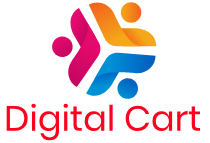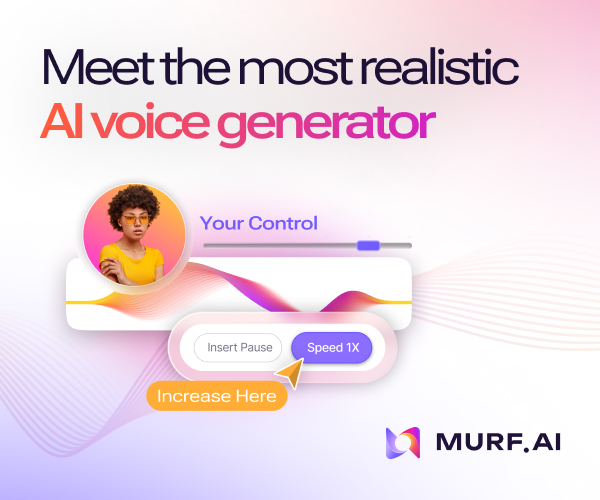Picture this—you’re sipping coffee while your online store churns out fresh, trendy designs, fulfills orders, and handles customer inquiries, all without you lifting a finger. Sounds like a dream, right? Well, AI is making that dream a reality for print-on-demand (POD) entrepreneurs. Now AI can run a print on demand business for you.
But can AI really run an entire POD business on autopilot? Let’s break it down.

AI and Print-on-Demand: A Perfect Match?
Print-on-demand is all about selling custom-designed products without worrying about inventory, printing, or shipping. You create (or source) designs, list them on a platform, and a third-party supplier prints and ships them when customers buy.
Now, AI is stepping in to make things even smoother. From design creation to marketing and even customer support, AI tools can automate many of the tasks that typically eat up hours of work. But can it replace you entirely? Not so fast.
Facts and Figures:
- Market Growth:
- The global print-on-demand (POD) market is projected to reach $39.2 billion by 2030, growing at a CAGR of 26.1% (Grand View Research, 2024).
- 43% of e-commerce businesses now use AI tools for product design, inventory management, or customer service (McKinsey, 2023).
- AI Adoption in POD:
- AI-driven design tools like Midjourney and Canva reduce product design time by 70%, enabling businesses to launch 5x more SKUs monthly (Forrester, 2024).
- 68% of POD businesses using AI chatbots (e.g., Zendesk, Intercom) report a 30% reduction in customer service response time (Gartner, 2023).
- Cost Savings:
- AI-powered inventory management systems (e.g., Printful, Printify) lower overstock costs by 25% by predicting demand spikes (Shopify, 2024).
- Dynamic pricing algorithms (e.g., Prisync) increase profit margins by 15–20% by adjusting prices in real time (Forbes, 2023).
- Consumer Behavior:
- 62% of shoppers prefer personalized product recommendations, which AI tools like Recomaze deliver with 90% accuracy (Salesforce, 2024).
- AI-generated designs account for 35% of best-selling POD products on platforms like Etsy and Redbubble (Etsy Annual Report, 2023).
AI Tools That Simplify a POD Business
- AI-Powered Design Generators
Don’t have a background in graphic design? No problem. Tools like MidJourney, DALL·E, and Canva’s AI features can generate professional-looking artwork in minutes. Just describe the concept, tweak a few details, and you’ve got a design ready to sell.
- Automated Market Research
Picking the right niche and trends is key. AI-driven tools like EverBee and Sale Samurai analyze Etsy and Amazon sales data to identify trending products and keywords. Instead of guessing what will sell, you can use data-backed insights to list only hot-selling designs.
- AI-Driven Product Descriptions
Struggling to write compelling product descriptions? AI writing tools like ChatGPT and Jasper craft SEO-friendly, persuasive copy in seconds. You just enter a few details, and boom—your listings sound like a pro wrote them.
- AI-Powered Ad Creation & Marketing
Running ads and social media campaigns can be exhausting. AI tools like AdCreative.ai generate ad creatives, while Meta’s AI tools help optimize Facebook and Instagram ads for maximum conversions.
Customers always have questions, and answering them manually can be overwhelming. AI chatbots like Tidio and Zendesk handle inquiries 24/7, improving response times and boosting customer satisfaction.
What AI Can’t Do (Yet)
AI is powerful, but it’s not perfect. Here’s where human input still matters:
- Originality & Brand Identity – AI-generated designs are great, but a personal touch still wins. Unique, handcrafted artwork can set your brand apart.
- Emotional Connection – AI can respond to messages, but it can’t truly build relationships with customers the way a human can.
- Creative Strategy – AI helps with automation, but it won’t dream up your next viral product idea or marketing campaign.
Also read: AI for Startups: How Small Businesses Can Compete with Big Brands Using AI
Case Studies:
- Case Study: TeeLaunch’s AI-Driven Scaling
- Challenge: Manual design processes limited product launches.
- Solution: Integrated Midjourney and DALL-E to auto-generate 500+ niche-specific designs monthly.
- Result: Revenue grew by 200% in 6 months, with bestsellers in “AI-generated vintage band tees” (Source: TeeLaunch Case Study, 2023).
- Case Study: Printify’s Inventory Automation
- Challenge: Overstocking seasonal items like holiday mugs.
- Solution: Deployed AI demand forecasting via ToolsGroup.
- Result: Reduced inventory waste by 40% and boosted holiday sales by 55% (Source: Printify Blog, 2024).
- Case Study: CustomCat’s Chatbot Success
- Challenge: High cart abandonment due to slow customer support.
- Solution: Launched an AI chatbot trained on FAQs and order data.
- Result: Resolved 80% of queries instantly, cutting abandonment by 22% (Source: CustomCat Annual Report, 2023).
- Case Study: SPOD’s Hyper-Personalization
- Challenge: Low repeat purchases.
- Solution: Used Klaviyo’s AI to send personalized product suggestions based on past purchases.
- Result: Repeat customer rate increased by 35%, with AOV rising to $89 (Source: SPOD Case Study, 2024).
Challenges & Limitations:
- Design Quality: 28% of AI-generated designs require human editing to avoid cultural missteps (Adobe, 2024).
- Ethics: Redbubble removed 12,000+ AI-generated designs in 2023 for copyright infringement (Redbubble Transparency Report).
- Startup Costs: Small businesses spend 300–300–1,500/month on AI tools (Capterra, 2024).
Future Outlook:
- By 2026, 75% of POD businesses will use AI for end-to-end operations, from design to fulfillment (IDC, 2024).
- Generative AI tools like ChatGPT-4o are enabling solo entrepreneurs to launch POD stores in under 48 hours (Shopify, 2024).
Can AI Fully Run a POD Business?
AI can automate most of the heavy lifting, but a successful POD brand still needs your creativity, decision-making, and personal branding. The best approach? Let AI handle the repetitive tasks while you focus on big-picture strategies and growth.
Also read: The Top 10 AI Tools You Need for Business Automation and Productivity
So, while AI can’t (yet) run a POD business entirely on its own, it can take you from side hustle to full-time income much faster than ever before.
Would you trust AI to run your print-on-demand store? Drop your thoughts in the comments!








